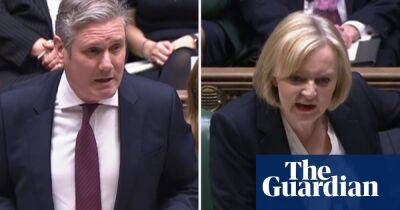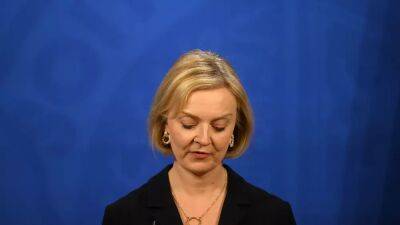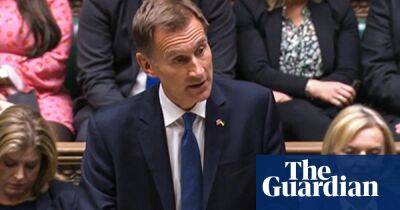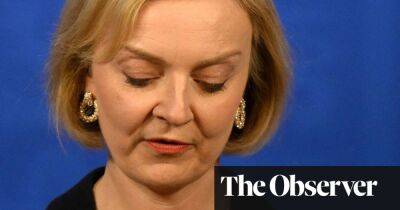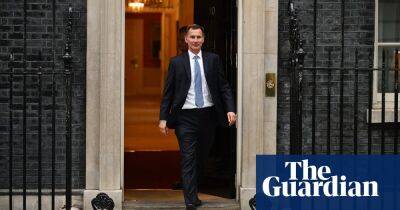Markets leap on reports of Liz Truss’s tax cuts U-turn. No time to dally
Financial markets don’t hang around. Primed for UK government U-turns, they leaped on the first reports that Liz Truss is now getting down to the task of deciding which tax measures – with the freeze on corporation tax to the fore – will have to be junked from the mini-budget. The pound rose by two cents against the dollar.
Gilts, or government IOUs, were also in demand on the whiff of a return to a version of fiscal responsibility. The yield on the 30-year gilt, which had been screaming crisis at 5.1% only 24 hours earlier, descended to 4.5% – to the great relief, one assumes, of the governor of the Bank of England, whose vow to stop buying gilts next week now looks slightly more credible. The message to the UK from markets was unmistakable: here is your escape chute, now please take it.
Over in Washington, Kwasi Kwarteng insisted he was going nowhere and that “our position hasn’t changed”, but the jig is surely up. A U-turn is being priced in, and the market action will be furious if expectations are disappointed. International investors simply won’t fund the chancellor’s original mini-budget on terms that make sense for the government; the price in higher borrowing costs, for households and businesses, would wipe out any benefits from the hopeful go-go growth stuff.
The next stage in the market end of this drama will inevitably be a demand for quick resolution. The 31 October date for the next fiscal event is too far away and George Osborne’s point is almost unanswerable: “Given the pain being caused to the real economy by the financial turbulence, it’s not clear why it is in anyone’s interests to wait 18 more days before the inevitable U-turn on the mini budget,” said the former chancellor.
Quite. Never mind the hit to
Read more on theguardian.com

